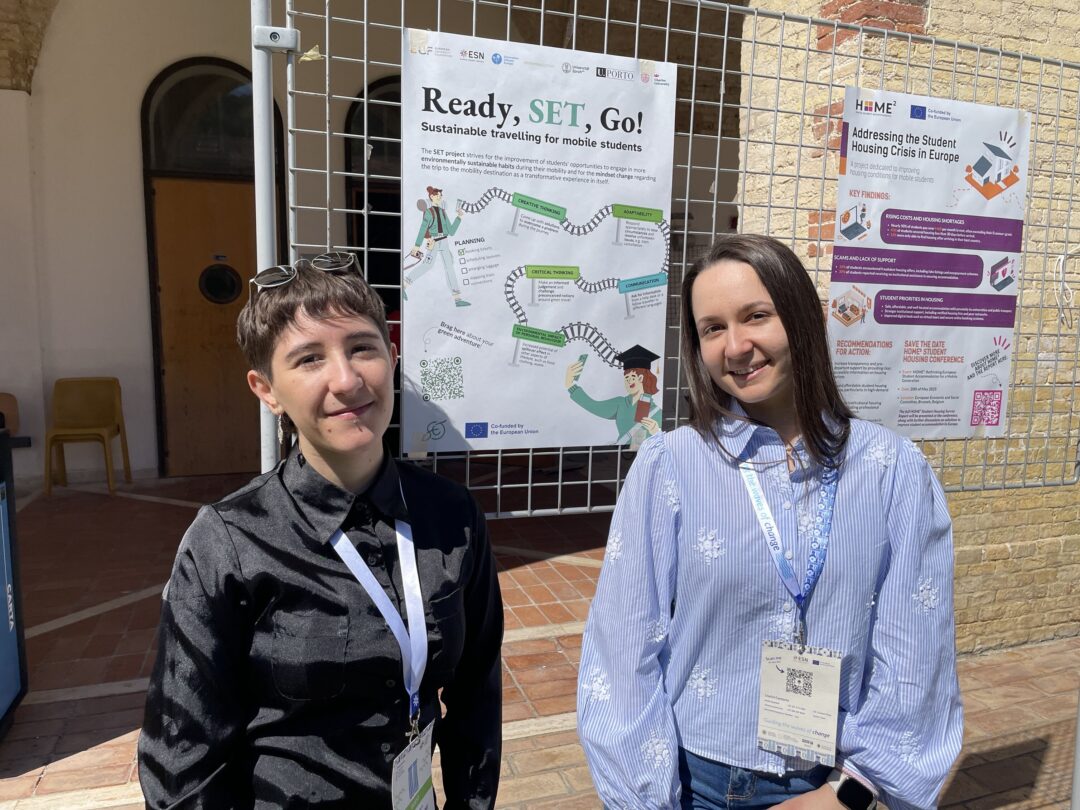On April 3-6, the 4th edition of the Erasmus Generation Meeting was celebrated in the port city of Ancona, Italy. This vibrant event brought together hundreds of students, professionals, and policymakers under the theme of “Empowering Youth as the Changemakers of Society” to discuss, empower, and inspire more inclusive, transformative, and impactful Erasmus+ experiences.
Among the various parallel sessions and activities, the SET project was successfully represented at the event, bringing forward the necessary dimension of environmental sustainability in mobility. The Ignite session titled “Think smart, travel sustainably!” confronted the audience with the fundamental questions of why students should travel green to their mobility destination and when the mobility experience actually begins. The rationale is based on three pillars: a) the carbon footprint per mode of transport and distance travelled by the students, b) the opportunities for personal development, and c) the link between soft skills practised when choosing to travel green – ranging from planning, self-management, interpersonal communication, flexibility and respect, and more – and their employability potential.
On Saturday, as part of the “Ready, SET, Go! Sustainable travelling for mobile students” poster, we talked with ESN volunteers from Poland, the Netherlands, Greece, Denmark, Spain, Germany, and Switzerland about useful resources to travel green that are available on the Erasmus Generation Portal. In addition, we advocated for the potential to practice transversal competencies in such a context and provided a preview of the student contest for mobile students who plan to travel sustainably in the academic year 2025/2026.
Thirdly, a panel discussion on “Green mobility: from Concept to Championing” was moderated by Neli Kalinova-Schmieder, Policy and Project officer at ESN International, with contributions from Salome Dermati, Policy and Research Officer at the EUF, Thijn van Eldijk, Institutional Relations Specialist at Eurail, and Chantal Riccardi from the University of Pavia and Coimbra Group on enriching the Erasmus+ experience through sustainable travel and other practices in all stages of mobility. Following a discussion of the main obstacles to green mobility – namely financial, mindset, and infrastructure – we ended on a positive note by celebrating the progress made in recent years, highlighting the importance of showcasing positive real-life stories, and recognising that consistency and contextualisation are the ultimate goal, not perfection.

